In a year full of tragedy and social upheaval, people around the world are questioning the power structures of society. The pandemic (and the miserable response from many governments) has made the issues that are inherent in the status quo glaringly obvious.
Bennington is going through a transition of power of its own, and we should have the same concerns with our little school as we do with greater societal transformation. As we question systems of power and fight for the wellbeing of the population, I fear that the governing and the governed become anonymous conglomerates of their various actions and roles, instead of individuals.
We are publishing this column in an attempt to help connect Bennington College to its new President. I seek neither to demonize nor deify, but merely to portray Laura as a human part of a system that must be changed. I intend to do this by interviewing Laura once a week to gauge her perspectives on the issues we face as a campus. Continue reading for our conversation about Bennington’s political involvement as an institution and as students.
Luke: How can the college as an institution better interact with the world? What can the administration do to make this happen?
Laura: Well, first of all thank you Luke for inviting me to join you, and I’m so glad that Bennington has a newspaper. By the way, I love your mission statement that you find when you subscribe, so kudos to you. And I hope that you will do – I know you will do what you say you’re gonna do there in terms of being an instrument of free press for the Bennington community.
I’m very excited about how Bennington can bring the world more to Bennington, and also impact the world. And I think that we’re really doing great things that I would focus on.
One is, to amplify the global community that is within Bennington. You know, we have students from Pakistan, and Brazil, England, and Japan, and Ukraine, and, you know, Nepal, Canada… about 45 countries in all. And international students make up about 17% of the student body. What a wonderful resource right within our community to learn about different cultures and different perspectives on the world, and to make friendships – for students and faculty to make friendships, you know, with people who are from all around the world. And, in doing that, also to support students both in telling their own stories, and also in having the whole community learn about what, you know, learn about what their countries and different perspectives are.
So, for a great example, both coming out of a campus trauma and a trauma for Marta, was the pop-up course that CAPA is running, Susan Sgorbati and others, on Belarus. And that’s a great way to amplify the voices that are here. The global voices that are here. I think there’s also an incredible opportunity to bring people even more from the outside world, and from various different cultures, into the Bennington community. And there’s actually one of the positive elements of Covid, I think, is that there can be more sharing, if you will.
One of the things that’s so wonderful is Joe Alpar’s Music Mondays, where I think this past week there was music from indigenous cultures, and before that, you know, talks about jazz, and about black music. Just to be able to bring in the kinds of music and culture and art of different people into Bennington.
The second thing is, really to think even more deeply about how Bennington itself connects to the world. And I believe that one of the extraordinary things about Bennington is that it is a connector of cultures and languages and experiences and geography and I think that Bennington is really looking… I think the world needs more of the Bennington kind of passion and empathy and creativity. And the good thing is that Bennington students themselves don’t need to wait to finish college to join the world. Whether it’s Field Work Term, and going out and doing something either in your home country or around the world, or having to do with things like international human rights… There is such an opportunity for Bennington to start to impact the world even while the students are here. And I think we, as an administration, and as a community, can do an even better job of getting more and more Field Work Term experiences and to identify new opportunities, also to look at the summer term where people can go out and participate, both in working and in public action. One of the things that, this is both as a nation but also international, is the work that Judith Enck is doing in plastic, is really looking at, you know, how is the world responding, and how can we learn from the rest of the world, in trying to create a better global habitat. I think that there are real opportunities for Bennington in that regard, and in other regards, to take a public action perspective.
Finally, I think, you know, we were just talking about the election… Bennington students have the opportunity right now to affect the election. And whether – I don’t know how many people we have registered to vote in Vermont, but certainly among students, faculty, and staff it’s a large group. And, to learn about Vermont and about what the Lieutenant Governor thinks and does versus the Governor, and question deeply about what that election means. All the way to poll watching – to ensure that, as we look at the national election that is one of the most important elections that certainly I’ve had in my lifetime, if not the most, I would say it is the most important election because I believe our very democracy is at risk. It’s fragile right now, and I think that the election is… I think it’s gonna be really important. And, I hope, very moving, when we see how many people are voting right now. When we see the lines in Georgia, even for early voting, that is a double-edged sword, because you shouldn’t have to wait in line for eleven hours, but people are absolutely intent on voting, and ensuring that there are safe ways to vote, and that there are poll watchers there, from both sides, and we have a strong, democratic, process. I think Bennington students alone, everyone should, and will be, participating in the election. And, I will say that, as you know, remember I call myself a recovering journalist. It’s a little hard after 30 years, you know, I’m recovering still, and I mean that with deep, deep respect for all of the free press. It’s more important than ever, particularly on the local level, you know, it’s threatened. And, I think that is really critical to an informed citizenry, and I think it’s another reason why information and democracy is fragile. I think, therefore, the Bennington Beacon is a really important vehicle for telling the story and holding us all accountable.
Luke: Yeah, I agree with all of that. How do you think, you know, you’re still kind of developing your knowledge and understanding of the student body, but how do you see the student body fitting into any CAPA work or any programs the administration might start in that effort? How do you see the student body getting involved?
Laura: Yeah. So, certainly with the example of the Belarus pop-up class, it’s very much an example of a student-led, and a student partnership, I’d love to see more of that. I’d love to see more of, whether there are town halls, or there are programs that are open to the community, or in and of itself supporting the student voice, and listening to the student voice. And I’d love to do that.
For example, I’m talking with a small group of students about how to think about a regular town hall that I would participate in, and how could we structure that, so I’m very dedicated to thinking about ways to listen to, to get to know the student community. And, to work with students, not in a top-down way, but in a way that is a kind of joint collaboration. You know, as we talked about, there may be ways that we, along with you as a press, and maybe the radio station, could jointly host some student discussions. I think the other thing that we will be creating more with staff and faculty about a process around shared governance, and we want to make sure that we have student voices on that. And, I want to support the student-led effort to think about what self-governance is like, you know, I’m interested in learning. I’m interested in hearing what the students have to say.
Thank you for reading this first edition, and thank you so much to Laura for being a (pretty crucial) part of this column, and for supporting this paper in its early stages. I’m looking forward to continuing this column for the rest of term, and hopefully being part of some meaningful change.
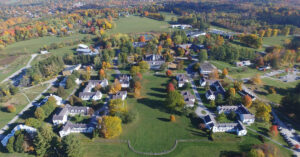
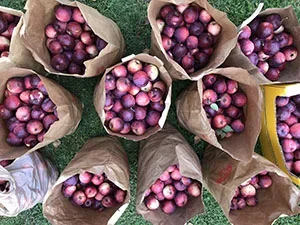
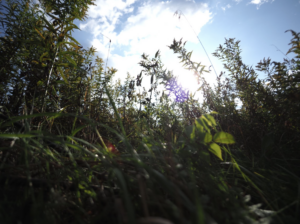
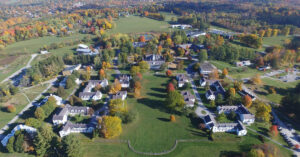
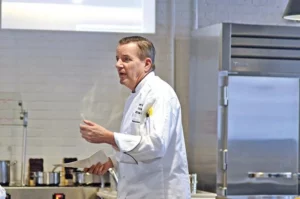
Be First to Comment